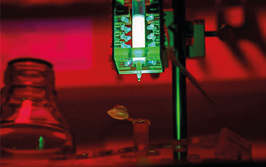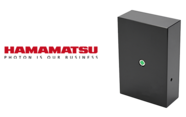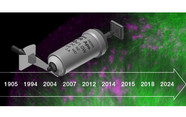No rocket science – Maximizing the benefits of Ion Chromatography Mass Spectrometry (IC-MS)

contributed by Metrohm |
Summary
Ion Chromatography Mass Spectrometry (IC-MS) is a powerful tool to handle many challenging analytical tasks.
Ion chromatography tackles difficult separation problems of various ionic species and typically works with conductivity detection. Mass detection as a secondary independent detector, confirms the identity of analytes in difficult matrices to ensure correct results. Even co-eluting components can be quantified and detection limits are considerably improved. Various ions, such as nitrate, phosphate, perchlorate, thiosulfate or thiocyanate are reliably separated and detected. Difficult matrices like soil or explosion residues can be removed with automated sample preparation techniques (e.g. with Inline Ultrafiltration or Dialysis).
The technique is a robust and easy-to-use way to monitor anions and oxoanions in various matrices, e.g. in environmental, post-explosion and semiconductor samples.
Log in or register to read this article in full and gain access to The Analytical Scientist’s entire content archive. It’s FREE!

















